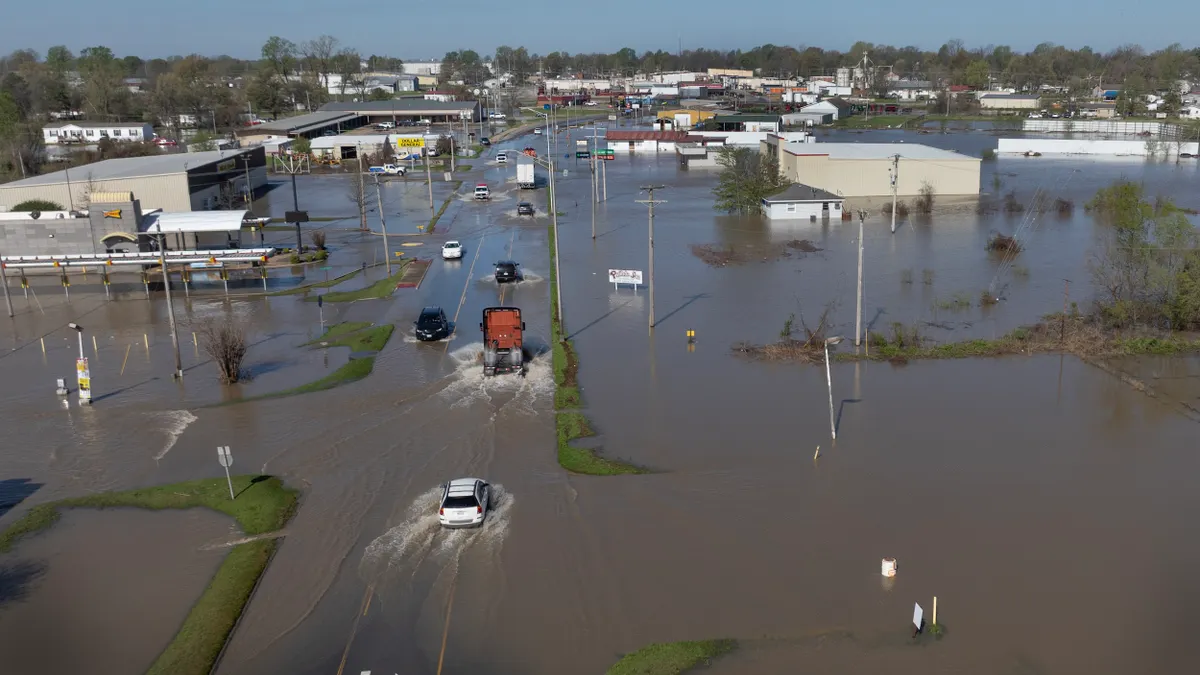The Trump administration’s dismissal of some 400 scientists and experts working on the National Climate Assessment, a congressionally mandated evaluation of climate change impacts, leaves cities without a resource widely used for infrastructure and climate resilience planning, building and zoning codes and budget projections, climate experts say.
“The loss of the NCA will mean elimination of critical guidance for industries, communities and organizations throughout the country,” Rick Spinrad, former undersecretary of commerce for the National Oceanic and Atmospheric Administration, which spearheaded the report, said in an email. “They will not have the critical information they need to make decisions about safety, protection of property, infrastructure or public investment priorities.”
On Monday, volunteer scientists and experts working on the sixth version of the federal government’s flagship climate report, slated to be released in late 2027 or early 2028, received an email from the Trump administration releasing them from their roles and stating the scope of the report was being reevaluated, according to numerous news reports. Required by Congress to be published every four years, the NCA was considered the definitive body of research on how climate change affects the country.
The report is a collaboration of 14 federal agencies, including the Health and Human Services and Defense departments, but it’s led by NOAA, which the Trump administration has targeted for budget and staffing cuts. Earlier this month, the administration eliminated funding for the U.S. Global Change Research Program, which oversees the report’s production.
“This is the most-vetted, most-looked-over document that is presented specifically for people living in cities and leaders in cities who are making plans for how climate change will impact them,” said Brenda Ekwurzel, senior director of scientific excellence for the Union of Concerned Scientists and a co-author of the fourth NCA.
The loss will be more consequential for midsized and smaller cities, Ekwurzel said, because major cities have more resources to hire climate advisers and adaptation professionals to keep them up to date on climate change.
Previous NCA reports have provided local and regional information on the effects of climate change as well as mitigation strategies communities could emulate. Comparing the data from past and previous reports helps cities assess trends and make projections, Ekwurzel said.
“People around the nation rely on the NCA to understand how climate change is impacting their daily lives already and what to expect in the future,” Rachel Cleetus, a senior policy director for the climate and energy program of the Union of Concerned Scientists and an author of the 2028 report, said in a statement.
Cleetus noted that previous reports have underscored the importance of cutting heat-trapping emissions and investing in climate resilience. “Trying to bury this report won’t alter the scientific facts one bit,” she said, “but without this information our country risks flying blind into a world made more dangerous by human-caused climate change.”
The cuts and dismissals call into question who will create the sixth assessment. Spinrad, a Biden administration appointee who resigned from NOAA earlier this year, speculated the Trump administration is "putting their own people in as replacements.”
Spinrad said he is concerned the Trump administration could “distort” the NCA to discount the impacts of climate change. “That will set our whole nation back by decades and will tell the world that American science is not credible,” he said.











